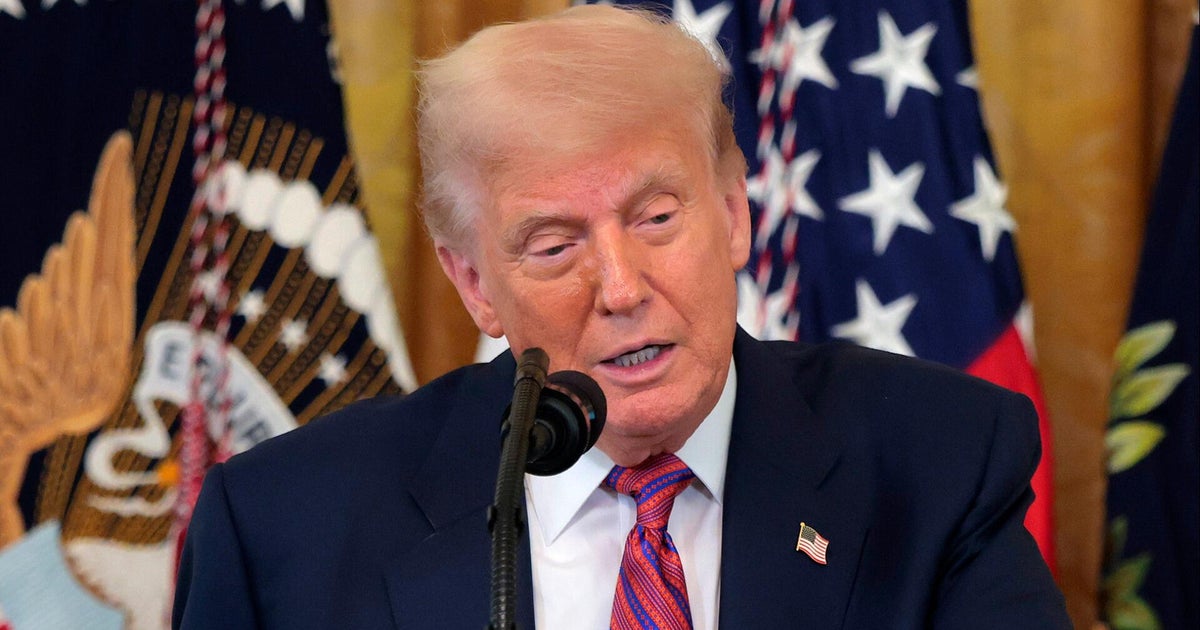In a groundbreaking move for the cryptocurrency landscape, President Donald Trump has officially signed the Guiding and Establishing National Innovation for U.S. Stablecoins (GENIUS) Act into law. Marking
Did You Know
The dot over an “i” is called a tittle.
?
AD
the advent of the first major federal regulations governing stablecoins, this legislation promises to reshape the way digital currencies are integrated into the American financial framework. With its passage receiving overwhelming bipartisan support in Congress, the GENIUS Act signals a historic acknowledgment of the growing influence of cryptocurrencies in the global economy.
The newly enacted law aims to create a more organized and secure environment for the issuance of stablecoins, which are digital currencies tied to stable assets like the U.S. dollar. By establishing initial guardrails and consumer protections, the GENIUS Act seeks to bolster investor confidence and encourage investment from major financial institutions. After the signing, the crypto market witnessed a significant surge, with total market value surpassing $4 trillion, underscoring the transformative potential anticipated from this regulatory clarity.
As banks explore the possibilities of issuing their own stablecoins, the implications of the GENIUS Act extend far beyond simple regulation. Advocates believe this legislation is a crucial step toward mainstream adoption of digital currencies, positioning the U.S. as a leader in the rapidly evolving global crypto arena. However, critics of the act caution that along with innovation comes the risk of reinforcing the dominance of the U.S. dollar, raising concerns about equitable financial practices. In this new era, the balance between innovation and regulation will be pivotal for shaping the future of finance.
Q&A (Auto-generated by AI)
What is the GENIUS Act?
The GENIUS Act, officially known as the Guiding and Establishing National Innovation for U.S. Stablecoins Act, is the first major federal legislation in the United States aimed at regulating stablecoins. Signed into law by President Donald Trump on July 18, 2025, it establishes a regulatory framework for stablecoins, which are cryptocurrencies pegged to stable assets like the U.S. dollar. The act aims to provide clarity and legitimacy to the cryptocurrency market, ensuring that stablecoins are backed by liquid assets and setting guidelines for their issuance.
How do stablecoins work?
Stablecoins are a type of cryptocurrency designed to maintain a stable value by pegging them to a reserve of assets, usually a fiat currency like the U.S. dollar. For every stablecoin issued, there is typically an equivalent amount of the underlying asset held in reserve. This mechanism helps to reduce volatility, making stablecoins more suitable for transactions and as a store of value compared to other cryptocurrencies like Bitcoin, which can experience significant price fluctuations.
What impact could this law have on crypto?
The GENIUS Act is expected to have a significant impact on the cryptocurrency industry by providing a clear regulatory framework for stablecoins. This clarity may encourage institutional investment and broader adoption of digital currencies, as businesses and consumers gain confidence in using stablecoins for transactions. Additionally, it could lead to increased oversight, potentially addressing concerns about fraud and market manipulation, while also paving the way for innovations in payment systems and financial technology.
What are the benefits of stablecoin regulations?
Stablecoin regulations can offer several benefits, including enhanced consumer protection, increased market stability, and greater legitimacy for the cryptocurrency sector. By establishing clear guidelines, regulations can help prevent fraud, ensure that stablecoins are adequately backed by reserves, and promote transparency. This can foster trust among users and investors, encouraging wider adoption of stablecoins in everyday transactions and potentially integrating them into the broader financial system.
How does this compare to past crypto regulations?
The GENIUS Act represents a significant advancement in cryptocurrency regulation compared to previous efforts, which often lacked comprehensive frameworks. Past regulations primarily focused on individual cryptocurrencies or specific aspects of the market, leading to confusion and uncertainty. In contrast, the GENIUS Act establishes a unified approach to regulating stablecoins, setting standards for their issuance and operation, which could serve as a model for future regulatory efforts in the broader cryptocurrency landscape.
















